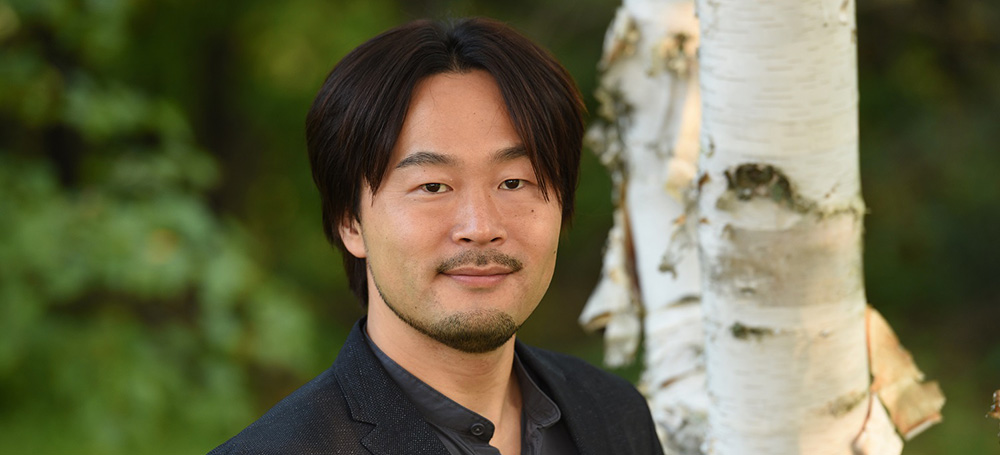

Kazuhisa Shibata, Ph.D.
Team Director, Human Cognition and Learning
kazuhisa.shibata@riken.jp
Research Overview
We know ourselves less than we expect because most information processing in the brain occurs without our consciousness. Our lab is broadly interested in how we recognize (cognition), how we decide (decision-making), and how we change through experience (learning) with an emphasis on interactions between conscious and subconscious processing in the human brain. We take an interdisciplinary approach including psychophysics, neuroimaging, machine learning, and computational modeling.
Main Research Fields
Biological Sciences
Related Research Fields
Engineering / Informatics / Humanities / Social Sciences / Basic/Social brain science / Experimental psychology / Neurophysiology/General neuroscience
Keywords
- Perception
- Cognition
- Learning
- Neuroimaging
- Artificial intelligence
Selected Publications
- Shibata, K., Lisi, G., Cortese, A., Watanabe, T., Sasaki, Y., and Kawato, M.:
"Toward a comprehensive understanding of the neural mechanisms of decoded neurofeedback"
NeuroImage, 189: 341-352 (2019).
10.1016/j.neuroimage.2018.12.022 - (*co-first author) *Bang, JW., *Shibata, K., *Frank, S., Walsh, EG., Greenlee, M., Watanabe, T., and Sasaki, Y.:
"Consolidation and reconsolidation share behavioral and neurochemical mechanisms"
Nature Human Behavior, 2: 507-513 (2018)
10.1038/s41562-018-0366-8 - (*co-first author) *Watanabe, T., *Sasaki, Y., *Shibata, K., and Kawato, M.:
"Advances in fMRI real-time neurofeedback"
Trends in Cognitive Sciences, 21: 997-1010 (2017).
10.1016/j.tics.2017.09.010 - Shibata, K., Sasaki, Y., Bang, JW., Walsh, EG., Machizawa, MG., Tamaki, M., Chang, LH., and Watanabe, T.:
"Overlearning hyperstabilizes a skill by rapidly making neurochemical processing inhibitory-dominant"
Nature Neuroscience, 20: 470-475 (2017).
10.1038/nn.4490 - Shibata, K., Watanabe, T., Kawato, M., and Sasaki, Y.:
"Differential activation patterns in the same brain region led to opposite emotional states"
PLoS Biology, 14 (9): e1002546 (2016).
10.1371/journal.pbio.1002546 - Shibata, K., Sasaki, Y., Kawato, M., and Watanabe, T.:
"Neuroimaging evidence for 2 types of plasticity in association with visual perceptual learning"
Cerebral Cortex, 26 (9): 3681-3689 (2016).
10.1093/cercor/bhw176 - Shibata, K., Sagi, D., and Watanabe, T.:
"Two-stage model in perceptual learning: toward a unified theory"
Annals of the NY Academy of Sciences, 1316 (1): 18-28 (2014).
10.1111/nyas.12419 - Shibata, K. and Watanabe, T.:
"Preference suppression caused by misattribution of task-irrelevant subliminal motion"
Proceedings of the Royal Society B, 279 (1742): 3443-3448 (2012).
10.1098/rspb.2012.0797 - Shibata, K., Kawato, M., Watanabe, T., and Sasaki, Y.:
"Monocular deprivation boosts long-term visual plasticity"
Current Biology, 22 (9): R291-292 (2012).
10.1016/j.cub.2012.03.010 - Shibata K., Watanabe T., Sasaki Y., and Kawato, M.:
"Perceptual learning incepted by decoded fMRI neurofeedback without stimulus presentation"
Science, 334 (6061): 1413-1415 (2011).
10.1126/science.1212003
News & Media
Lab Members
Principal investigator
- Kazuhisa Shibata
- Team Director




